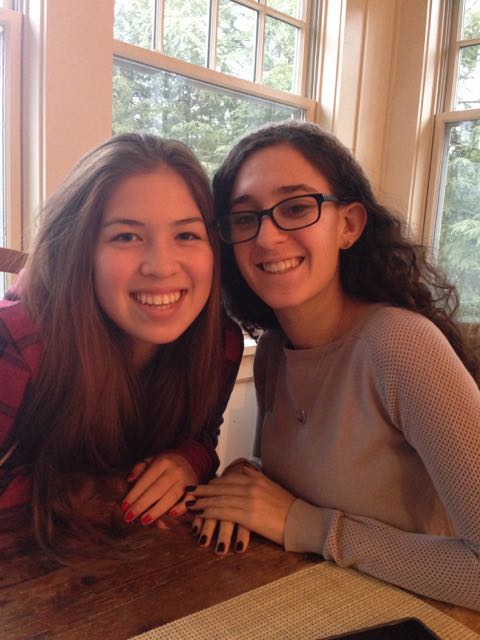A-Schoolers Step Out into the Real World
- Wednesday, 11 February 2015 10:32
- Last Updated: Wednesday, 11 February 2015 15:44
- Published: Wednesday, 11 February 2015 10:32
- Lena Proctor and Hannah Wolloch
- Hits: 4978
Lena Proctor and Hannah Wolloch worked at Scarsdale10583 in January
Throughout the month of January, all A-School classes are suspended to give kids time to attend their internships during the day. For every hour that students would normally be in class, an hour is added to the internship requirement. Kids who are lucky enough to have three to four A-School classes have those hours to fill, which allows some to venture into the city for work. Students with a lower number of classes, or a very complicated schedule, usually find jobs in Westchester. Still, with 11 hours or 25, internship turns out to be a very fulfilling learning experience for everyone involved.
At the beginning of the process, each student is assigned one of the five A-School teachers to be their mentor. The job of the mentors is essentially to keep the students on track, assign call-in days to discuss the experience, and carry out site visits to see what work the students have done. The mentors are also available for help and questions. "Venturing out into the real world is not an easy task, and it helps to know there is always someone you can go to for advice and guidance if things get confusing" explained Sara Calderon '16.
Although internship can be a fun and enjoyable experience, there are nerve-wracking and difficult parts of it as well. Sometimes students must learn to cooperate with scary bosses or are given assignments they fear they can't complete. Often times, working through these bumps in the road teaches professionalism and dedication, and makes for a richer experience.
"In the short month, it is incredible to think about all of the skills that I have developed," says one student. "Not only have I learned how to do my job, but I have also learned how to work and collaborate with people. Before January, it was hard for me to introduce myself, but now, after internship, I can comfortably start a conversation with pretty much anyone." The Internship program allows for students to step outside of their normal settings and comfort zones, which is why so many A-Schoolers learn valuable lessons about Katie Frohman
Here are two students talking about their various experiences with their internships this year:
Katie Frohman: For my last internship I worked with the corporate events team at NBC Universal. I helped out with making Super Bowl hospitality playlists which was really fun. I also helped to make, transport, and organize gift bags for an event with the CEO of Comcast and the CEO of NBCUniversal held in the Rainbow Room. At this event, I met a handful of famous people which made the night really memorable and fun for me. Additionally, I did some grunt work such as inventory, filing, and cross-checking guest lists. Although the commute was long and cold, it was all very much worth it because it learned a lot and had a great time with a great group of people.
Eliza Auchincloss
A School Director and English teacher Howard Rodstein says that, "Devoting a month of school to hands-on, real life experience says a lot about the core of an A-School education. Because students have to develop a contract in the fall, live by that contract in January, and then reflect on what they have learned both in their journal and their internship self-evaluation, the A School Director Howard Rodstein
A-School history teacher Jen Maxwell says, "I think the internship experience is invaluable. It gives students an opportunity to explore their passions by choosing their own internship sites. Dealing with adult work in the "real world" helps students to build maturity and confidence. I love hearing kids talk about how during internship, they learned to become more comfortable making phone calls, or navigating the city, or speaking with adults, or advocating for themselves. I also like to visit the students on-site. A kid who may be quiet or lack confidence in my history class, may be outgoing, dynamic and highly successful in an internship setting, even in a place that I find intimidating, like a high-end fashion design studio. This experience helps me to get to know students better, and often helps the kids to be more comfortable and successful when they return to the classroom in February."